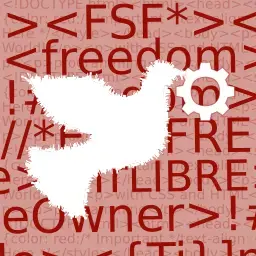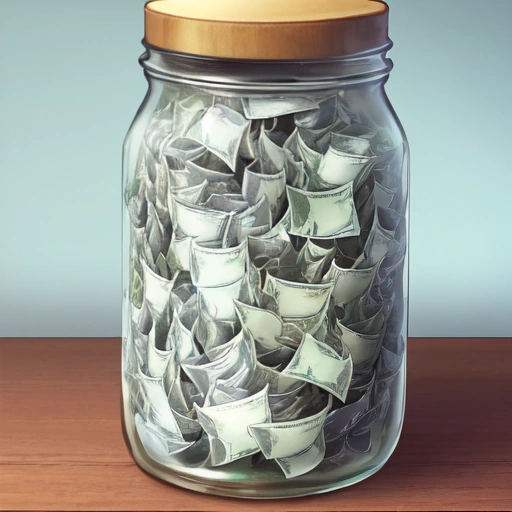

Enlighten me; what is it I’m missing?
Web Developer by day, and aspiring Swift developer at night.


Enlighten me; what is it I’m missing?


I asked what the OP felt was better about GPLv3.
The person who responded made provably false statements. I know they are false, because I went to look it up; which is outlined in my “[whooped] out references”.


These sources report to Proton any time they find leaked information or data stolen in a hack from a third-party online service that’s tied to a Proton Mail email address or a Proton Pass alias.
I’m inclined to think that they look for known data breaches using your email address or alias, and if found they will tell you what kind of data is associated with the breach; e.g., social security, physical address, etc. So they don’t need to actually know that information, because they’re not searching using that information.


GPLv3 is virally open source (copyleft), BSD 2-Clause is not.
Your first statement is patently false and misleading.
Two variants of the license, the New BSD License/Modified BSD License (3-clause), and the Simplified BSD License/FreeBSD License (2-clause) have been verified as GPL-compatible free software licenses by the Free Software Foundation, and have been vetted as open source licenses by the Open Source Initiative. (Wikipedia)
Being “copyleft” is not a requirement for being open source. Maybe you’re thinking of free software. There are differences, but as the FSF is quoted, they are also very similar.
GPLv3 ensures free software remains free and contributions cannot be exploited and withheld from the community. BSD2C does not.
To my understanding, and if I’m wrong I’d love to know why, both GPLv3 and BSD2 both ensure the openness of software. They just go about it differently. GPL (I’m not super versed at v3) basically means any modifications to GPL’d code must also be GPL’d, and source made available; also, if you statically link against other GPL’d code, your code must be GPL’d. Dynamic linking (or linking against LGPL code, like glibc) does not have this requirement.
With BSD code, your only requirement is that the code (or binaries) must remain BSD2. Sure, someone can make modifications and keep them to themselves for fun and profit. But that doesn’t mean the rest of the community has to follow suit. The original code remains open and available with no license modifications. If a company owns BSD2 code, and goes under, the community can simply fork the code and take ownership as they please.
Neither license is perfect, and I’m sure we could find plenty of examples of people/companies that have abused both licenses.


I’d love to hear your thoughts on why you feel the GPLv3 is better than the BSD2-clause license LadyBird is using.


My god that was painful to watch. Skip ahead to the last minute of the video, unless you like being tortured with over the top “Hello, fellow kids” corporate BS.


Useful in fighting as it helps protect the lower jaw and teeth?
But then again, it could simply be a trait we have developed over the millennia, and there is no deeper meaning to it.


As in a signal of how manly a man truly is, comparative to still being a boy.
Edit: also, hair is counter productive in a fight, because it gives your opponent something to grab a hold of and use against you.


That has to be one of the laziest, obvious trolls I’ve seen in a while. Could you at least put a little more effort into understanding the thing you’re railing against and not showing your blatant ignorance? That is not what was said and you know it. Do better.


Show me someone who didn’t read the linked article…


If only there was an article that described the monetization of such a model… oh, wait…
We want people to make money off of their software, but we recognize that the community benefits from a project’s economic success. Within fair-code, creators have the exclusive right of commercializing their work, ensuring long-term profitability. Companies that wish to commercialize the software can contact the author and form a business relationship that benefits both parties!


As far as I can tell, this is completely fake. There is no Lotus “SmartToilet”, but they do have smart bidets. But no 2FA.


And they would have gotten away with it too if it weren’t for those kids….


Sign, sign, everywhere a sign Blockin’ out the scenery, breakin’ my mind Do this, don’t do that, can’t you read the sign?


What they don’t say is how much in developer time they’ve spent rolling their own database. Then there’s also maintenance and new features.


Oh we’re good at digging tunnels. No one bothered to mention human safety though. That’s a different skill set we haven’t come close to mastering.


Oh man. I had forgotten about those text guides we used to use for games. Those were invaluable, and IMO, better than YouTube walkthroughs of today.


Oh no! You’re right. How dare I use a dictionary of all things to define words? What was I thinking. Of course your superior intellect could easily see through my charade. Whatever would we do without you around to point out our mistakes?
Shut up.
Not all dimensional lumber is completely dry, which is why it warps and potentially splits. There are three ratings: GRN for having an excess of 19% moisture at the time of surfacing, KILN or KD for no more than 19%, and MC15/KD15 which has no more than 15%.
This is not necessarily common knowledge either.
Anecdotally, I have bought soaking wet wood from Home Depot before. It sucked because by the time it was dry enough to use, every single board was as crooked as a politician looking to get reelected.